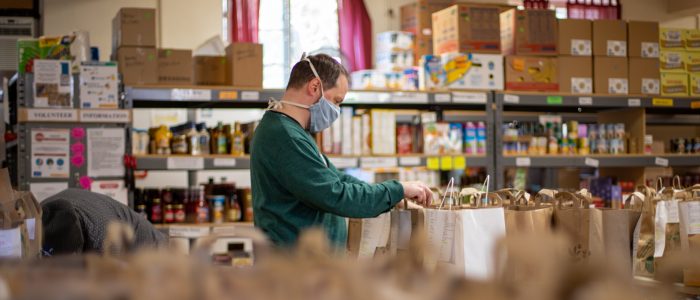Faith’s response to the Afghan refugee crisis

Faith-based organisation and places of worship have been quick to respond to the needs of Afghan refugees. In one example, Bushey United Synagogue was “swamped” with 3000 parcels of aid being donated in 3 days following what started as a small, private group Facebook appeal.
Many places of worship have also provided clothes and other necessities in the places where refugees have been arriving. Canterbury Mosque, for example, has been providing for the basic needs of arrivals in the hotel where they are being housed.
Faith groups, however, are not only quick to mobilise, but also consider the longer term. Their longevity and stability in the community is a significant asset. At FaithAction, we talk about one of the key qualities of faith groups: they are the first in and last out at the point of crisis.
This week, the Church of England launched a toolkit to help those wanting to help but not sure how. It provides advice on the context of the crisis and how to help, links to relevant organisations where you can get involved, and resources related to prayer, theology, and advocacy. As well as helping you to find emergency appeals in your area, the toolkit stresses the key long term role faith groups can play, explaining: “It is not a quick short-term response that is most needed but a willingness to befriend families and support them for the long haul.”
Although focussed on addressing immediate needs, the Muslim Charities Forum’s short guide for organisations, released last month, also touches on long-term support. It emphasises the importance of talking to local Councils and Afghan community groups to meet needs accurately. In their final point, they also invite people to consider if they can continue to “support with housing, education, healthcare, mental health support, internet access and ongoing financial aid” in the longer term, as those seeking refuge may not be able to access other public services immediately.
Longer-term support can be provided not only through getting involved in refugee support organisations locally but also through getting your faith community involved in Community Sponsorship. This is the refugee resettlement scheme where, to date, over 500 refugees have been given community connections from the start to settle into life in the UK. The Welcome Churches network also equips churches to welcome refugees as a way of helping them find a community of friendship and support.
Faith-based organisations are also responsible for providing aid in Afghanistan itself. Muslim Hands, for example, is supporting those displaced in the country. They have been working in Afghanistan for over 20 years, providing emergency relief as well as long-term projects, with a particular focus on women and children.
So, what is your part to play?
Image by Aaron Doucett via unsplash.com



